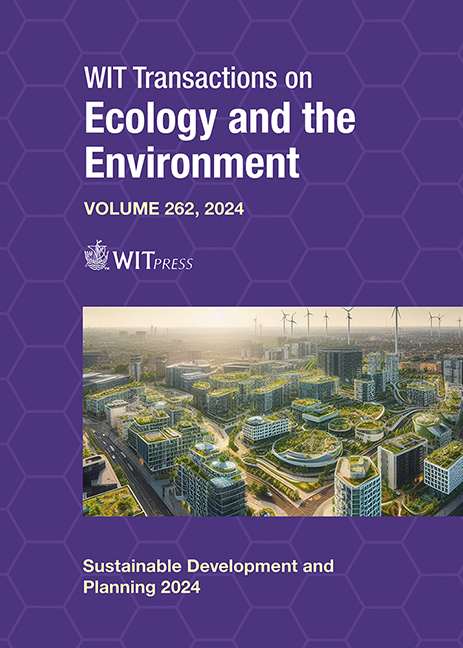TOWARDS SUSTAINABLE DEVELOPMENT: EXPLORING THE OPTIMAL STRATEGY FOR PROMOTING NEW ENERGY VEHICLES WITHIN THE 2030 CARBON EMISSION REDUCTION TARGET IN CHINA
Price
Free (open access)
Transaction
Volume
262
Pages
8
Page Range
339 - 346
Published
2024
Paper DOI
10.2495/SDP240281
Copyright
Author(s)
YUYAO LIU, KUNHUI YE, ZIXUAN ZHAO
Abstract
China has set itself the goal of peaking carbon dioxide emissions before 2030 and becoming carbon neutral by 2060. New energy vehicles (NEVs) have become the centrepiece of carbon reduction in the transportation sector due to their efficient use of energy. Under the ‘dual carbon’ target, China has set electric vehicle sales at around 20% of total new vehicle sales in 2025, and this figure is expected to reach 35%–55% by 2030. However, there are still scare studies about the optimal strategy of promoting electric vehicles to help to achieve the 2030 carbon reduction target. To achieve this goal, this study applied a multi-objective optimization analysis with the NSGA-II genetic algorithm to formulate an effective strategy to promote NEVs in China. The research shows that the five provinces with the largest economic volume need to promote 42% of NEVs. This research provides the framework for assigning tasks to reduce carbon emissions in the transportation industry. The optimal strategy is beneficial for evaluating the regional NEV promotion potential and put forward a cost-effective and highly efficient promotion strategy. The results are relevant for coordinating regional interests and guiding governments to implement sustainable energy policies
Keywords
carbon reduction goal, multi-objective optimization, new energy vehicles





